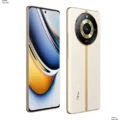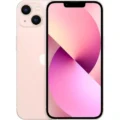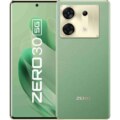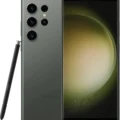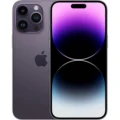- AnyMobilePrice : Home Page
- All Products
- Samsung
- Samsung Galaxy S8 Plus Price in Saudi Arabia
Samsung Galaxy S8 Plus Price in Saudi Arabia
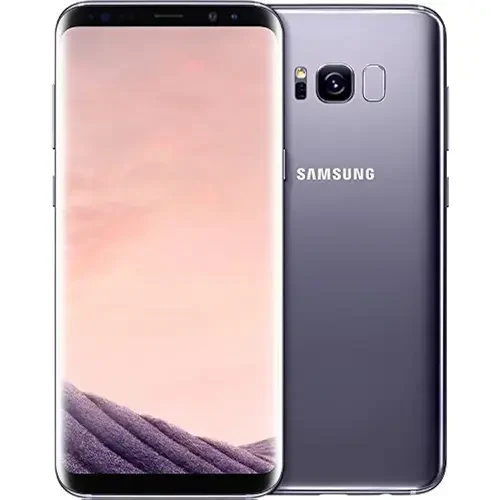





Pros
- Stunning Display
- Premium Design
- Good Camera
- Water And Dust Resistant
- Fast Charging and Wireless Charging
Cons
- Outdated Software
- Battery Life
- Lack of Dual SIM
Specification
Price
| Price | SAR 1,600 to SAR 2,000 |
Release Date
| Announced | 2017, March 29 |
| Status | Available. Released 2017, April |
Network
| Technology | GSM / HSPA / LTE |
| 2G Network | GSM 850 / 900 / 1800 / 1900 - SIM 1 & SIM 2 (dual-SIM model only) |
| 3G Network | HSDPA 850 / 900 / 1700(AWS) / 1900 / 2100 |
| 4G Network | 1, 2, 3, 4, 5, 7, 8, 17, 20, 28 |
| Speed | HSPA 42.2/5.76 Mbps, LTE (5CA) Cat16 1024/150 Mbps |
| GPRS GPRS (General Packet Radio Service) is a packet oriented mobile data service on the 2G and 3G cellular communication system's global system for mobile communications (GSM), Generally, GPRS is used for the purpose of wireless data transfer, such as sharing pictures and videos or browsing the Internet via a mobile phone connection. | |
| EDGE EDGE (Enhanced Data GSM Environment) is a wireless network technology generally considered the next step in the 2G network offers data transfer rates up to four times faster than ordinary GSM networks, Generally, EDGE is used for the purpose of wireless data transfer, such as sharing pictures and videos or browsing the Internet via a mobile phone connection. |
Body
| Dimensions | 159.5 x 73.4 x 8.1 mm (6.28 x 2.89 x 0.32 in) |
| Weight | 173 g (6.10 oz) |
| Build | Glass front (Gorilla Glass 5), glass back (Gorilla Glass 5), aluminum frame |
| SIM SIM (Subscriber Identity Module) is a small card that contains mobile network subscriber's account information. This allows the phone using the card to attach to a mobile network. The SIM card is most commonly associated with GSM and UMTS mobile networks. Moving a SIM card from one phone to another allows a subscriber to switch mobile phones without having to contact their mobile network carrier. SIM cards can also be used by a phone to store limited amounts of data, such as phone numbers and text messages. | Single SIM (Nano-SIM) or Hybrid Dual SIM (Nano-SIM, dual stand-by) |
| Water Resistant | IP68 dust/water resistant (up to 1.5m for 30 min) |
Display
| Display Type Display Technology => A number of display technologies and types used in mobile phones => TFT (Thin Film Transistor), IPS (In-Place Switching), OLED (Organic Light Emitting Diode), AMOLED (Active-Matrix Organic Light-Emitting Diode), Super AMOLED (an even advanced version of AMOLED), Resistive Touchscreen (Resistive touchscreens contain two layer of conductive material with a very small gap between them which acts as a resistance), Capacitive Touchsceen (Capacitive touchscreen technology consists of a layer of glass coated with a transparent conductor) | Super AMOLED capacitive touchscreen, 16M colors |
| Size | 6.2 inches, 98.3 cm2 (~84.0% screen-to-body ratio) |
| Resolution | 1440 x 2960 pixels, 18.5:9 ratio (~529 ppi density) |
| Display Protection Display Protection => Gorilla Glass is a special alkali-aluminosilicate glass shield with exceptional damage resistance that helps protect mobile displays from scratches, drops, and bumps of everyday use, It is always better to go for a smartphone with Gorilla Glass for that added protection and peace of mind. | Corning Gorilla Glass 5 |
| Features | HDR10 compliant- 3D Touch (home button only)- Always-on display |
Platform
| OS | Android 7.0 (Nougat), upgradable to Android 9.0 (Pie), One UI |
| Chipset Chipset is a group of integrated circuits designed to perform one or a more dedicated functions, often with real time computing constraints, Popular smartphones are equipped with more advanced embedded chipsets that can do many different tasks depending on their programming. | Exynos 8895 (10 nm) - EMEA Qualcomm MSM8998 Snapdragon 835 (10 nm) - USA & China |
| CPU CPU (Central Processing Unit) mostly known as processors, CPU processes instructions in order to carry out certain functions that make your device operate properly. Processors are often described as the brain of computers, smartphones and tablets, Smartphones and tablets rely on processors to carry out their every task, Processors are an incredibly important factor in selecting any type of computing device, including your smartphone. | Octa-core (4x2.3 GHz Mongoose M2 & 4x1.7 GHz Cortex-A53) - EMEA Octa-core (4x2.35 GHz Kryo & 4x1.9 GHz Kryo) - USA & China |
| GPU GPU (Graphics Processing Unit) is a single-chip processor designed to rapidly manipulate and alter memory to accelerate the creation of images in a frame buffer intended for output to a display, This includes things such as lighting effects, object transformations, and 3D motion. | Mali-G71 MP20 - EMEA Adreno 540 - USA & China |
Memory
| Card Slot Memory Card Slot is a special slot for inserting a memory card. Memory cards allow you to expand the phone's built-in memory, A memory card (sometimes called a flash memory card or a storage card) is a small storage medium used to store data such as text, pictures, audio, and video, for use on small, portable or remote computing devices such as mobile phones, mp3 players, digital cameras. | microSDXC (uses shared SIM slot) - dual SIM model only |
| Internal Storage Internal Storage is a data storage space (flash memory) mostly used in smartphones, tablets and other electronic devices where operating system, apps, music, photos, videos, files and other user data Is stored. | 64GB 4GB RAM, 128GB 6GB RAM UFS 2.0 or UFS 2.1 |
MAIN CAMERA
| Single | 12 MP, f/1.7, 26mm (wide), 1/2.55", 1.4µm, dual pixel PDAF, OIS |
| Features | LED flash, auto-HDR, panorama |
| Video | 4K@30fps, 1080p@30/60fps, 720p@240fps, HDR, stereo sound rec., gyro-EIS, OIS |
SELFIE CAMERA
| Single | 8 MP, f/1.7, 25mm (wide), 1/3.6", 1.22µm, AF 2 MP (dedicated iris scanner camera) |
| Features | Dual video call, Auto-HDR |
| Video | 1440p@30fps |
SOUND
| Alert Types | Vibration; MP3, WAV ringtones |
| Loudspeaker | Yes |
| 3.5mm Jack | Yes - 32-bit/384kHz audio - Active noise cancellation with dedicated mic |
Connectivity
| WLAN | Wi-Fi 802.11 a/b/g/n/ac, dual-band, Wi-Fi Direct, hotspot |
| Bluetooth Bluetooth is a wireless communications technology for exchanging data between mobile phones, headsets, computers and other network devices over short distances without wires, Bluetooth technology was primarily designed to support simple wireless networking of personal consumer devices. | 5.0, A2DP, LE, aptX |
| NFC NFC (Near field communication) is a set of standards for smartphones and similar devices to establish peer-to-peer radio communications with each other by touching them together or bringing them into proximity, usually no more than a few inches. | Yes |
| GPS GPS The Global Positioning System is a satellite-based radio navigation system, GPS permits users to determine their position, velocity and the time 24 hours a day, in all weather, anywhere in the world, In order to locate your position, your device or GPS receiver must have a clear view of the sky. | Yes, with A-GPS, GLONASS, BDS, GALILEO |
| FM Radio | |
| USB | 3.1, Type-C 1.0 reversible connector |
| Infrared Infrared connectivity is an old wireless technology used to connect two electronic devices. It uses a beam of infrared light to transmit information and so requires direct line of sight and operates only at close range. |
Features
| Sensors Sensors are electronic components that detects and responds to some type of input from the physical environment. The specific input could be light, heat, motion, moisture, pressure and location, The output is generally a signal that is converted to use in computing systems, a location sensor, such as a GPS receiver is able to detect current location of your electronic device. | Iris scanner, fingerprint (rear-mounted), accelerometer, gyro, proximity, compass, barometer, heart rate, SpO2 |
| Massaging | SMS(threaded view), MMS, Email, Push Email, IM |
| Browser | HTML5 |
| HDR Mode | Yes, HDR10 |
| Java Support Java for Mobile Devices is a set of technologies that let developers deliver applications and services to all types of mobile handsets, ranging from price efficient feature-phones to the latest smartphones. Java is currently running on over 3 billion phones worldwide, and growing. It offers unrivaled potential for the distribution and monetization of mobile applications. | No |
Battery
| Battery Type Battery Type => Cell phones run on various kinds of batteries depending on the manufacturer, phone size or shape and features. There are basically four types of cell phone batteries => Lithium Polymer, Lithium Ion, Nickel Metal Hydride and Nickel Cadmium. | Li-Ion 3500 mAh, non-removable (13.48 Wh) |
| Charging | 15W wired, QC2 Samsung Adaptive Fast Charge (60% in 45 min) |
| Wireless Charging Wireless Charging (Inductive Charging) uses an electromagnetic field to transfer energy between two objects. This is usually done with a charging station. Energy is sent through an inductive coupling to an electrical device, which can then use that energy to charge batteries or run the device. | Wireless (Qi/PMA) (market dependent) |
| Web Browsing | 07:10 hr |
| Watching Video Talk Time is the longest time that a single battery charge will last when you are constantly talking on the phone under perfect conditions, Ambient temperature and highly dependent on the cellular network environment such as the distance to the closest cell network tower. | 10:52 hr |
| Gaming | 04:35 hr |
MISC
| Colors | Midnight Black, Orchid Gray, Arctic Silver, Coral Blue, Maple Gold, Rose Pink |
| Model | SM-G955F, SM-G955FD, SM-G955W, SM-G955A, SM-G955P, SM-G955T, SM-G955V, SM-G955R4, SM-G955U, SM-G955S, SM-G955K, SM-G955L, SM-G955, SM-G955U1, SM-G955N, SM-G9550, SC-03J, G955F |
| SAR | 0.67 W/kg (head) 0.97 W/kg (body |
| SAR EU | 0.27 W/kg (head) 1.00 W/kg (body) |
TEST
| PERFORMANCE | AnTuTu Benchmark 288941 |
Samsung Galaxy S8 Plus Price in Saudi Arabia Review
The Samsung Galaxy S8 Plus is a well-known smartphone that launched back in 2017. It quickly gained popularity due to its sleek design, impressive display, and solid performance.
Many people in Saudi Arabia are still interested in this model, especially those looking for a reliable device without breaking the bank.
Knowing the price of the Galaxy S8 Plus in Saudi Arabia can help you decide if it fits your budget and needs.
In this blog, we’ll dive into its current price, where to buy it, and how it stacks up against other models. Let’s get started!
Samsung Galaxy S8 Plus Price in Saudi Arabia
The price of the Samsung Galaxy S8 Plus in Saudi Arabia can vary based on several factors, including the condition of the phone (new or used), the retailer, and any ongoing promotions. Here’s a general overview of the pricing:
1. New Device
The price for a brand-new Samsung Galaxy S8 Plus typically ranges from SAR 1,600 to SAR 2,000. Prices may vary slightly based on the retailer and any special offers available.
2. Used Device
For a used Samsung Galaxy S8 Plus, you can expect prices to be lower, usually ranging from SAR 800 to SAR 1,200. The condition of the phone will significantly impact the price, with well-maintained devices fetching higher amounts.
Key Features of Samsung Galaxy S8 Plus
Display:
The Samsung Galaxy S8 Plus has a 6.2-inch Quad HD+ Super AMOLED Infinity Display. This means the screen is bright, sharp, and stretches almost from edge to edge, giving it a modern, sleek look. It’s great for watching videos, playing games, or browsing the web. The Infinity Display was one of the first of its kind, making the phone feel more immersive.
Processor:
Depending on the region, the Galaxy S8 Plus comes with either the Exynos 8895 (global version) or the Snapdragon 835 (USA version). Both processors provide smooth performance for everyday tasks like browsing, streaming, and even playing some games. While newer processors are faster, the S8 Plus still handles most apps without trouble.
Camera:
The phone features a 12MP rear camera with Dual Pixel technology, allowing for fast and accurate focusing. It performs well in different lighting conditions, capturing sharp and clear images. The 8MP front camera is good for selfies and video calls. Even today, the camera on the S8 Plus holds up well for general photography.
Battery:
The Galaxy S8 Plus has a 3,500mAh battery, which can last a full day with moderate use. It supports both fast wired and wireless charging, so you can quickly recharge when needed. However, the battery performance may have slightly degraded over time, especially in used models.
Storage:
The phone comes with 64GB of internal storage, which should be enough for apps, photos, and videos. If you need more space, you can add a microSD card to expand the storage up to 256GB. This is handy if you want to store more files without worrying about running out of space.
RAM:
The 4GB of RAM allows for decent multitasking. You can switch between apps without much lag, though it might struggle with very demanding tasks compared to newer phones that have more RAM.
Operating System:
The Galaxy S8 Plus was originally launched with Android 7.0 (Nougat), but it can be upgraded to Android 9.0 (Pie). While it may not get the latest Android updates, the phone still runs smoothly on Android 9. However, missing out on future updates could affect security and compatibility with some newer apps.
Water and Dust Resistance:
With an IP68 rating, the S8 Plus is resistant to water and dust. It can survive being submerged in up to 1.5 meters of water for 30 minutes. This feature adds peace of mind if you accidentally drop your phone in water or use it in dusty environments.
Biometrics:
The phone offers multiple ways to unlock it, including an iris scanner, fingerprint sensor, and facial recognition. These features make it easy and secure to unlock your phone quickly, though newer models have more advanced biometric systems.
These features made the Samsung Galaxy S8 Plus a top smartphone when it was released, and they still hold up well today, especially if you’re looking for a budget-friendly, high-quality device.
Where to Buy the Galaxy S8 Plus
If you’re looking to purchase the Samsung Galaxy S8 Plus in Saudi Arabia, there are several options available:
Online Retailers
Souq: A popular online marketplace with various sellers offering new and used devices.
Jarir Bookstore: Known for electronics, they often have the latest models at competitive prices.
Extra: Another reliable online store that frequently lists mobile phones.
Physical Stores
Samsung Stores: Official stores provide the latest models and accessories with warranty options.
Carrefour: This hypermarket chain sells electronics, including smartphones, at competitive prices.
Local Electronics Shops: Smaller shops may offer good deals, especially on used or refurbished devices.
Classified Ads and Marketplaces
Haraj: A popular platform for buying and selling used items in Saudi Arabia. You can often find good deals from individual sellers.
Facebook Marketplace: Local listings can sometimes yield great finds at lower prices.
Be sure to check the seller’s reputation and warranty options before making a purchase to ensure a smooth buying experience!
Should You Buy the Samsung Galaxy S8 Plus in 2024?
Buying the Samsung Galaxy S8 Plus in 2024 can be a smart choice if you’re looking for a good phone at a low price. While it’s not as fast or advanced as newer models, it still works well for basic tasks like texting, browsing, and watching videos.
Here are a few things to consider:
Pros: It has a big, bright display and a good camera for everyday use. Plus, it’s much cheaper now than when it first came out.
Cons: It may not get the latest software updates, and newer phones will have better battery life and faster performance.
If you don’t need the latest tech, the Samsung Galaxy S8 Plus can still offer great value, especially as a budget-friendly options
The Samsung Galaxy S8 Plus remains a solid option in 2024, especially if you’re looking for a phone with a good screen, decent performance, and a reasonable price. While it may not have all the latest features, it still holds up well for everyday tasks. For those who want a reliable phone without breaking the bank, the Galaxy S8 Plus is a smart choice in Saudi Arabia, particularly if you don’t mind buying a used or refurbished device.
How To Clear The Recycle Bin In Samsung Galaxy S8 Plus
On the Samsung Galaxy S8 Plus, there isn’t a specific “Recycle Bin” like on computers, but there are ways to permanently delete files like photos and videos. Here’s how to clear them from your Gallery and My Files:
1. Clear Recycle Bin in Gallery:
Open the Gallery app.
Tap the three dots in the top-right corner.
Select Recycle bin (this is where deleted photos/videos are stored temporarily).
Tap Empty to permanently delete all items or select specific photos to delete.
Confirm your action.
2. Clear Recycle Bin in My Files:
Open the My Files app.
Tap the three dots in the top-right corner.
Select Recycle bin.
Tap Empty to clear all files or choose files to delete permanently.
Confirm the deletion.
By following these steps, you’ll permanently remove files from your Samsung Galaxy S8 Plus.
How to Install Netflix on Samsung Galaxy S8 Plus
Installing Netflix on your Samsung Galaxy S8 Plus is easy and can be done in a few simple steps. Here’s how:
1. Open the Google Play Store
Find the Google Play Store app on your home screen or in the app drawer and tap to open it.
2. Search for Netflix
In the search bar at the top, type “Netflix” and press the search icon.
You will see a list of apps related to your search.
3. Select the Netflix App
Look for the Netflix app in the search results. It usually has a red logo with a white “N” in the middle.
Tap on it to open the app page.
4. Install the App
On the Netflix app page, tap the Install button.
The app will begin downloading and installing automatically.
5. Open Netflix
Once the installation is complete, you can either tap Open from the Play Store or find the Netflix icon in your app drawer or home screen.
6. Sign In or Create an Account
When you open Netflix for the first time, you will be prompted to sign in with your existing account or create a new one if you don’t have one.
7. Start Watching
After signing in, you can browse through the available shows and movies and start watching!
That’s it! You’ve successfully installed Netflix on your Samsung Galaxy S8 Plus. Enjoy your favorite shows and movies!
How to Uninstall Programs on Samsung Galaxy S8 Plus
Uninstalling programs or apps on your Samsung Galaxy S8 Plus is a simple process. Here’s how to do it:
1. Open the App Drawer
Swipe up from the bottom of your home screen to open the App Drawer, where all your installed apps are displayed.
2. Find the App You Want to Uninstall
Scroll through the list of apps to find the one you want to remove.
3. Long Press the App Icon
Tap and hold (long press) the app icon until a menu appears.
4. Select Uninstall
In the menu that appears, tap on Uninstall. You might also see an option to App Info; you can select that and then tap Uninstall on the next screen.
5. Confirm Uninstallation
A prompt will appear asking if you’re sure you want to uninstall the app. Tap OK to confirm.
6. Check for Uninstallation
The app will be removed from your phone, and you can check the App Drawer to ensure it’s no longer listed.
Alternative Method: Uninstall via Settings
If you prefer, you can also uninstall apps through the Settings menu:
Open Settings:
Tap on the Settings app from your home screen or App Drawer.
Select Apps:
Scroll down and tap on Apps.
Find the App:
Browse the list or use the search bar to find the app you want to uninstall.
Tap on the App:
Select the app from the list.
Uninstall the App:
Tap the Uninstall button and confirm by tapping OK.That’s it! You have successfully uninstalled the program from your Samsung Galaxy S8 Plus.
How to Use Samsung Galaxy S8 Plus
Using the Samsung Galaxy S8 Plus is straightforward. Here’s a guide to help you get started with its main features:
1. Powering On and Off
To Turn On: Press and hold the Power button on the right side until the Samsung logo appears.
To Turn Off: Press and hold the Power button and tap Power Off on the screen.
2. Unlocking the Phone
Fingerprint Unlock: Place your registered finger on the fingerprint sensor located on the back of the phone.
Face Recognition: Hold the phone up to your face to unlock it (if set up).
Pattern/PIN: Swipe up on the lock screen and enter your pattern or PIN if other methods aren’t set.
3. Navigating the Home Screen
Home Button: Press the Home button (the round button at the bottom) to return to the home screen.
App Drawer: Swipe up from the bottom of the screen to access all your apps.
4. Using Apps
Tap an app icon to open it.
To return to the home screen, press the Home button.
Use the Recent Apps button (the square button) to switch between apps or close them.
5. Making Calls
Open the Phone app.
Use the Keypad to dial a number or select a contact from the Contacts tab.
Tap the green phone icon to call.
6. Sending Text Messages
Open the Messages app.
Tap the + icon or New Message.
Select a contact or enter a phone number, type your message, and tap the Send button.
7. Taking Photos
Open the Camera app.
Tap the shutter button to take a photo.
Swipe left or right to switch between Photo, Video, and other modes.
8. Adjusting Settings
Open the Settings app from the app drawer.
Here, you can adjust Wi-Fi, Bluetooth, Display settings, and more.
9. Using the Internet
Open the Internet app or Google Chrome.
Type a website address in the search bar or use the search bar to look for something.
10. Charging the Phone
Connect the charger to the USB-C port at the bottom of the phone.
You can also use wireless charging by placing the phone on a compatible charging pad.
By following these steps, you can easily use your Samsung Galaxy S8 Plus for everyday tasks, from calling and texting to taking photos and browsing the internet!
Where to Replace Samsung Galaxy S8 Plus Battery
If you need to replace the battery of your Samsung Galaxy S8 Plus, you have several options. Here’s where you can get it done:
1. Authorized Samsung Service Centers
The safest and most reliable option is to visit an authorized Samsung service center. These centers have trained technicians who use genuine Samsung parts. You can find the nearest service center by visiting the Samsung website or using the Samsung Members app.
2. Local Repair Shops
Many local phone repair shops offer battery replacement services for the Galaxy S8 Plus. Make sure to choose a reputable shop with good reviews. Ask if they use original or high-quality replacement batteries.
3. DIY Battery Replacement
If you’re comfortable with technology, you can replace the battery yourself. You’ll need to purchase a compatible battery and tools. Websites like iFixit offer detailed guides and videos on how to replace the battery yourself. However, be aware that this option may void any warranty you have.
4. Online Services
Some online services offer mail-in repairs. You send your phone to them, and they replace the battery and send it back. Make sure to check the service’s reputation and reviews before using this option.
Tips for Battery Replacement
Backup Your Data: Before getting the battery replaced, back up your important data, as some methods may require resetting the phone.
Check Warranty: If your phone is still under warranty, check if battery replacement is covered.
Keep Receipts: Always keep the receipt after a battery replacement in case you need further assistance.
By choosing one of these options, you can get the battery of your Samsung Galaxy S8 Plus replaced efficiently and safely.
Which is Better: Samsung Galaxy S8 Plus vs. S9 Plus?
When deciding between the Samsung Galaxy S8 Plus and the Galaxy S9 Plus, it’s essential to consider their features, performance, and overall value. Here’s a comparison to help you choose the right one for you.
1. Design and Display
Galaxy S8 Plus: Features a 6.2-inch Quad HD+ Super AMOLED display. The design is sleek with curved edges and a glass back.
Galaxy S9 Plus: Also has a 6.2-inch Quad HD+ Super AMOLED display but includes some design refinements. It has thinner bezels and a more symmetrical look.
2. Camera
Galaxy S8 Plus: Comes with a 12MP rear camera and an 8MP front camera. It performs well in most lighting conditions but lacks advanced features.
Galaxy S9 Plus: Upgrades the camera to a 12MP dual rear camera setup, which allows for better zoom and improved low-light performance. The front camera remains at 8MP but includes new features like AR Emoji.
3. Performance
Galaxy S8 Plus: Powered by the Exynos 8895 or Snapdragon 835 processor. It has 4GB of RAM and performs well for everyday tasks.
Galaxy S9 Plus: Features the newer Exynos 9810 or Snapdragon 845 processor, with 6GB of RAM. This results in better multitasking and performance for demanding apps and games.
4. Battery Life
Both devices come with a 3,500mAh battery. However, the S9 Plus may offer slightly better battery management due to its newer processor.
5. Software
Galaxy S8 Plus: Originally launched with Android 7.0 (Nougat) but is upgradable to Android 9.0.
Galaxy S9 Plus: Launched with Android 8.0 (Oreo) and is upgradable to newer versions. It typically receives updates for a longer period than the S8 Plus.
6. Additional Features
S9 Plus: Comes with stereo speakers tuned by AKG, offering better audio quality. It also has improved water and dust resistance features (IP68 rating) and supports Super Slow-mo video recording.
7. Price
As the S9 Plus is newer, it might be more expensive than the S8 Plus, especially in the used or refurbished market. However, prices can vary based on condition and where you buy them.
In summary, the Samsung Galaxy S9 Plus is the better choice if you want improved camera capabilities, better performance, and additional features. However, if you find a great deal on the Galaxy S8 Plus, it still offers solid performance and features for everyday use. Your decision should be based on your budget and what features are most important to you.
Samsung Galaxy S8 Plus Password Reset Without Losing Data
If you’ve forgotten the password for your Samsung Galaxy S8 Plus and want to reset it without losing your data, follow these steps. Note that this method requires you to have a Samsung account set up on your device.
Method 1: Using Find My Mobile
Access Find My Mobile:
Go to the Find My Mobile website (find my mobile samsung ) on a computer or another device.
Log In:
Sign in with your Samsung account credentials that are linked to your Galaxy S8 Plus.
Select Your Device:
Once logged in, select your Galaxy S8 Plus from the list of devices associated with your Samsung account.
Unlock Your Device:
Look for the Unlock option on the right side of the screen and click on it.
Follow the prompts to unlock your device. This method will not erase any of your data.
Access Your Phone:
After the device is unlocked, you can access your phone and change your password if needed.
Method 2: Resetting through Safe Mode (if you suspect an app is causing issues)
If you believe a third-party app is causing problems with your password, you can boot your device into Safe Mode:
Boot into Safe Mode:
Power off your device.
Press and hold the Power button until you see the Samsung logo.
When you see the logo, release the Power button and immediately press and hold the Volume Down button until the device boots up.
You will see “Safe mode” at the bottom left of the screen.
Uninstall Problematic Apps:
In Safe Mode, only pre-installed apps will run. Go to Settings > Apps and uninstall any recently downloaded apps that you think may be causing issues.
Restart Your Phone:
Restart your phone to exit Sa
fe Mode and see if you can access your device normally.
Using the Find My Mobile method is the best way to reset your password without losing any data.
If you suspect an app is causing the issue, booting into Safe Mode can help you troubleshoot and remove the problematic application.
Always ensure to back up your data regularly to avoid potential loss in the future.
Reviews/ Comments
Disclaimer Note
We do not guarantee that the information of this page is 100% accurate and up to date.



